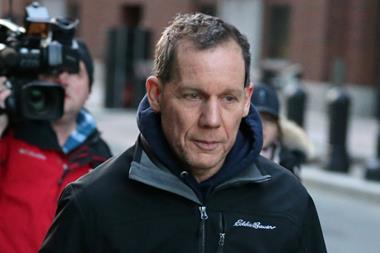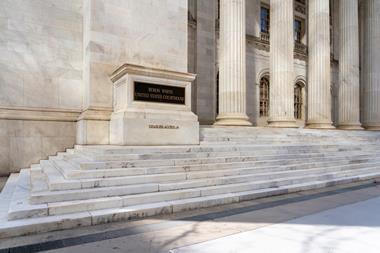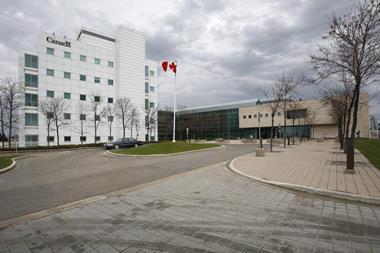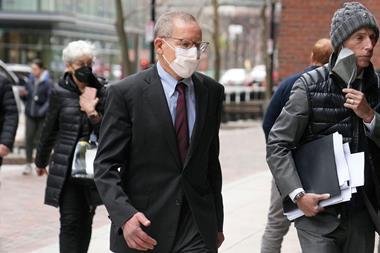A prominent researcher has avoided being jailed following a conviction for making false statements about his links to a Chinese university. Kansas district court judge Julie Robinson ruled on 18 January that University of Kansas (KU) chemistry professor Feng ‘Franklin’ Tao’s sentence should be time served with no fine or probation other than a $100 (£81) so-called ‘special assessment’ fee.
The ruling could make it harder for the US government to convict academic scientists on charges related to affiliations with countries it considers to be a national security threat. It comes as Harvard’s former chemistry department chair Charles Lieber – who was convicted more than a year ago of felony charges stemming from his receipt of millions of dollars in research funding from China – awaits his rescheduled sentence in March.
In April 2022, a federal jury convicted Tao of three wire fraud charges and one count of making false statements. He had initially faced up to 20 years in prison and substantial fines. A judge subsequently acquitted Tao on three of those four counts, and only one charge of making false statements remained. The extremely light sentence aside, Tao’s legal team is expected to appeal the conviction.
The judge basically crushed the government’s argument
Xiaoxing Xi, Temple University, US
Tao, a Chinese national, was one of roughly two dozen academics who were charged as part of the US government’s now-defunct ‘China Initiative’, launched by the Trump administration to prosecute researchers who commit economic espionage and trade secret theft on behalf of the Chinese government. The US Department of Justice ended this programme back in February 2022, amid growing criticism that it constitutes racial profiling of researchers and harms US scientific enterprise.
In her sentencing memo, Judge Robinson said there was no evidence that Tao stole anything from KU or the US National Science Foundation (NSF) that funded his work. ‘This is not a case where there’s any evidence that the time that he spent in China was spent to share intellectual property, proprietary information, inside information that was funded by the taxpayers or anyone else with the People’s Republic of China,’ she argued.
No evidence of actual conflict
Tao spent several months at Fuzhou University in China while considering accepting a job there, but he did not accept the position and he received no money from that institution, Robinson noted. However, the judge did fault Tao for failing to disclose this visit and its purpose in KU’s 2019 conflict of interest form.
Xiaoxing Xi, the former chair of the physics department at Temple University in Philadelphia who was arrested in 2015 and charged with spying for China but was eventually vindicated when the US government dropped its case against him, calls Robinson’s legal ruling ‘very significant’.
A precedent-setting ruling
‘The most important thing is the judge’s argument that she sees no loss on the part of the government or the university,’ Xi tells Chemistry World. This is significant because the government and prosecutors had proposed 30 years in prison based on the damages calculated to KU and NSF, he suggests.
‘The judge basically crushed the government’s argument,’ Xi says. ‘It sets a precedent that it’s going to be tough [for federal prosecutors] to make that argument again,’ he adds.
Tao’s Washington, DC-based lawyer, Peter Zeidenberg, says he hopes that this will be the last of these so-called ‘research integrity’ cases that the government will bring against academics. ‘The harm that these investigations and prosecutions have caused to the research community is simply incalculable,’ he says. ‘And, as the judge noted, all of the entities involved…[including KU and NSF] all got exactly what they paid for and were completely satisfied with the work provided.’
Meanwhile, Lieber’s high-profile sentencing, which had already been delayed and was supposed to take place on 11 January, is now postponed until mid-March due to the apparent timing conflicts of his lawyers.
Lieber, who is living with late-stage lymphoma, was found guilty in December 2021 of two counts of making false statements to federal authorities, two counts of filing a false income tax return, and two counts of failing to file reports of foreign bank and financial accounts with the US Internal Revenue Service. He faces up to 26 years in prison and $1.2 million in fines.












No comments yet